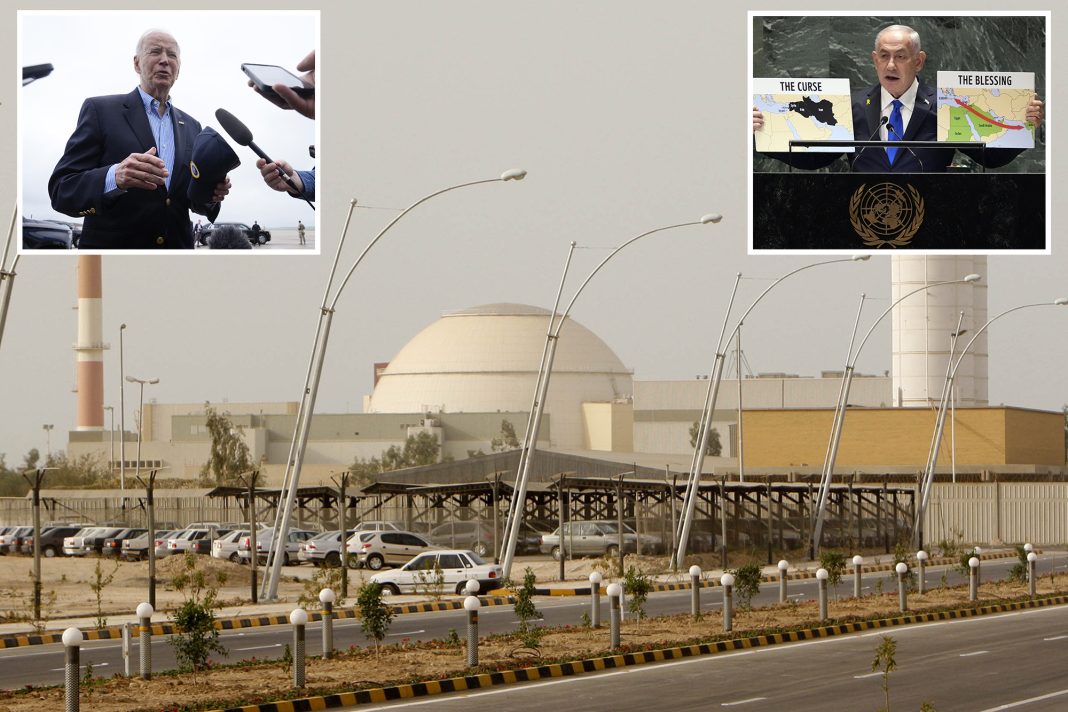Tensions in the Middle East have reached a boiling point, particularly between Israel and Iran, as discussions surrounding Iran’s nuclear ambitions continue to dominate international discourse. Recently, President Biden made headlines when he explicitly opposed a potential preemptive Israeli strike on Iranian nuclear facilities, stating firmly, “The answer is no.” This statement, delivered while boarding Air Force One en route to North Carolina to assess damage from Hurricane Helene, reflects a growing concern about the ramifications of military action in an already volatile region.
The backdrop to Biden’s remarks includes a series of aggressive exchanges between Israel and Iran. Just a day prior, Iran launched over 200 rockets at Israel, marking the second direct assault this year. Fortunately, the attack reportedly resulted in minimal damage and no casualties, but it underscores the escalating hostilities. This bombardment followed a significant Israeli operation that resulted in the assassination of Hassan Nasrallah, a key figure in Hezbollah, further destabilizing the region and igniting fears of retaliation.
The complexity of the situation is compounded by the U.S. administration’s nuanced stance on Iranian aggression. Following the recent rocket attacks, the White House pledged to impose consequences on Iran, echoing sentiments from previous incidents, including a similar attack in April. However, despite bipartisan pressure from Congress to enhance sanctions on Iranian oil exports, the administration has refrained from committing to more stringent enforcement measures. This hesitance may stem from a desire to maintain diplomatic channels while also recognizing the potential backlash that could arise from an all-out conflict.
The issue of Iran’s nuclear program was a focal point during the recent vice presidential debate, revealing differing perspectives within U.S. politics. Minnesota Governor Tim Walz, the Democratic candidate, was circumspect, avoiding a definitive stance on whether he would support an Israeli attack on Iran. In contrast, Republican Senator JD Vance expressed unequivocal support for Israel’s decisions, highlighting the partisan divide on foreign policy matters concerning Iran.
Despite Biden’s clear objections to a preemptive strike, the Israeli government appears to be moving forward with its own agenda. Prime Minister Benjamin Netanyahu’s administration has historically prioritized aggressive military strategies, often disregarding U.S. advisories. A recent report suggested that Biden’s warnings against military incursions into southern Lebanon were viewed in Israel as a mere formality, lacking a credible diplomatic alternative to the ongoing conflict.
A deeper understanding of this geopolitical chess game reveals the precarious balance of power in the region. The assassination of Nasrallah has not only diminished Hezbollah’s leadership but also poses a risk of retaliation from Iranian proxies throughout the Middle East. The cycle of violence threatens to spiral further, with each side calculating its next move carefully.
As the international community watches closely, the stakes are high. The potential for miscalculation looms large, making it imperative for U.S. leaders to navigate these treacherous waters with caution. Engaging in dialogue that fosters diplomacy rather than conflict may be the only path forward to achieve stability in the region. As Biden continues his presidency, his administration’s approach to Iran will undoubtedly shape not only U.S. foreign policy but also the broader dynamics of Middle Eastern relations for years to come.
In this ever-evolving scenario, it’s evident that the implications of these tensions extend far beyond the immediate parties involved, affecting global security, economic stability, and the lives of countless civilians caught in the crossfire. As such, the conversation surrounding Iran’s nuclear program, Israel’s military actions, and U.S. foreign policy will remain critical not only for policymakers but also for citizens concerned about the future of peace in the Middle East.

